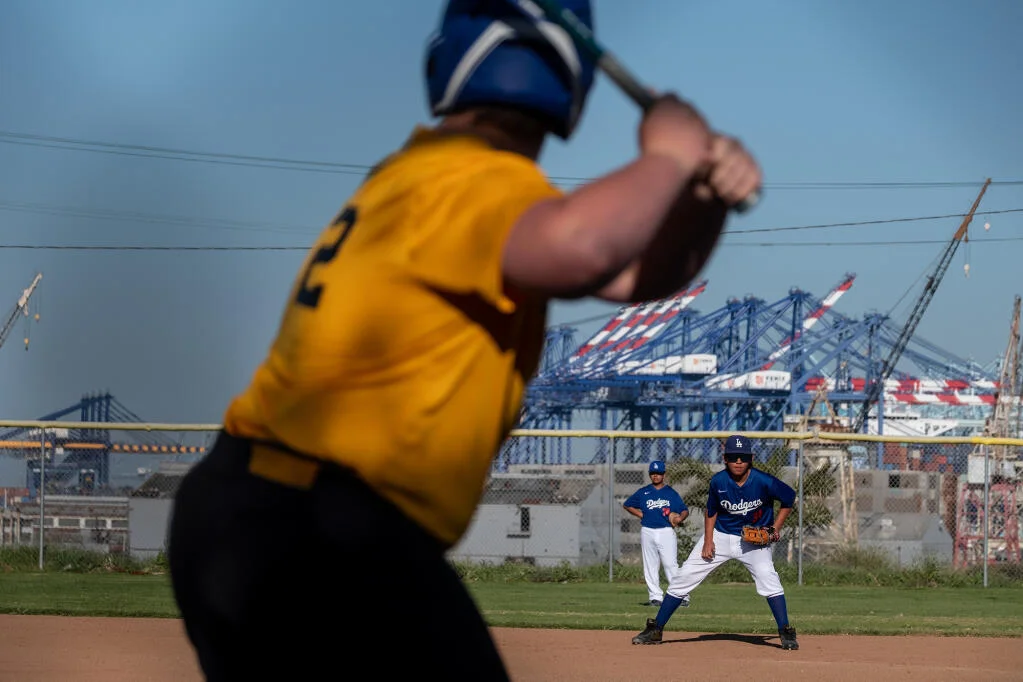
Are Communities Living in Silence? The Hidden Threat of Toxic Gas in LA
In a shocking revelation, residents of several communities in Los Angeles County are unwittingly living near toxic fumigant facilities that have operated for decades without adequate oversight. The pervasive use of methyl bromide, a highly hazardous pesticide linked to serious health issues, raises urgent questions about public safety and regulatory efficacy.
In neighborhoods like Compton, children play freely in parks just blocks away from fumigation plants. However, many parents, like Piedad Delgado, are unaware of the dangers lurking nearby. "I didn't even know that the hazardous chemical was being used nearby," Delgado expressed, highlighting widespread ignorance about the chemical's presence and its potential health effects.

For over 30 years, companies in the region have used methyl bromide to fumigate imported produce, despite its classification as a reproductive toxicant by state health officials. The gas can produce headaches, dizziness, and serious neurological effects upon prolonged exposure. Alarmingly, regulatory agencies, such as the South Coast Air Quality Management District (SCAQMD), have not implemented sufficient monitoring or action protocols, despite demands from local representatives for increased oversight.
Recent findings revealed that the San Pedro and Compton plants release vast quantities of methyl bromide, yet air samples near these facilities have never been taken. Instead, officials plan a complex, multi-step process to evaluate potential health risks, raising concerns about the timeliness and effectiveness of their actions.
As community members voice their fears, three Congress members have called for greater transparency and routine monitoring of nearby emissions. They contend that residents living close to hazardous sites deserve clarity about the substances they may be breathing. "Our communities deserve a greater understanding of the toxic emissions and health risks associated with them," U.S. Reps. Nanette Barragán, Maxine Waters, and Robert Garcia stated in a recent letter urging regulatory agencies to take more responsibility.
Despite the clear warning signs, officials claim it is not necessary to act unless specific thresholds are met, which critics argue could result in complacency. Residents like Edvin Hernandez lament the government’s lack of proactive measures: "There’s no interest from the government to protect our health. We’re surviving by the hand of God,” he remarked, echoing frustrations heard during community meetings.
As the debate intensifies over the control and use of toxic chemicals in urban environments, the urgency to address how these chemicals affect everyday lives cannot be understated. Do the regulatory protocols in place truly serve the safety of these communities, or do they merely reflect a complicated web that leaves residents uninformed and at risk? The communities of Los Angeles brace themselves for the answers, as calls for accountability grow louder.
The unfolding situation prompts vital questions for the public: What measures should be put in place to ensure community safety? How can residents advocate for better transparency and health assessments in their neighborhoods? Without proactive steps and community engagement, the hidden threat of toxic gas could continue unabated, with health consequences lingering in the air.
We invite readers to reflect on these issues and share your thoughts. How can we better protect our communities from toxic exposure? Your insights are essential for fostering a healthy dialogue.